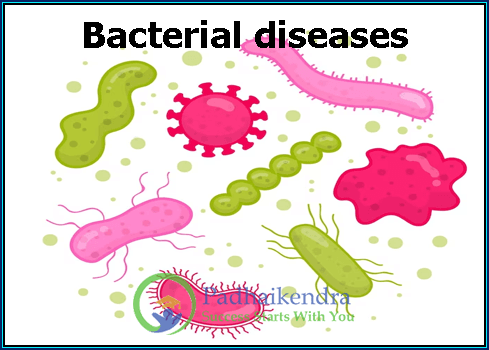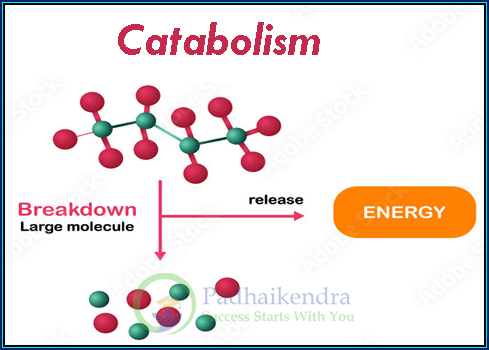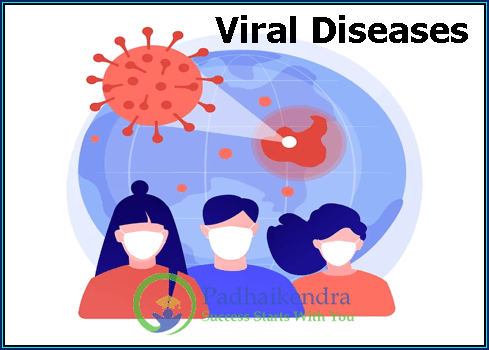- Introduction
- Definition and Overview
- Historical Perspective
- Importance of Understanding Menopause
- Introduction
- Definition and Overview
Menopause is a natural phase in a woman’s life when her menstrual periods stop, marking the end of her reproductive years. It’s like a biological “pause” button that brings significant changes to a woman’s body and life. Menopause typically occurs around the age of 45 to 55, but it can vary from person to person.
- Historical Perspective
The journey through menopause is as old as humanity itself. Throughout history, menopause has been a topic of curiosity and sometimes mystery. In ancient times, women going through this phase were often seen as wise elders, valued for their life experiences and knowledge. In some cultures, menopause was even celebrated as a rite of passage.
However, the understanding of menopause has evolved over time. In the 20th century, as medical science advanced, researchers delved deeper into the biological aspects of menopause. This led to the development of treatments and therapies to alleviate the symptoms associated with this phase.
- Importance of Understanding Menopause
Understanding menopause is crucial for several reasons:
Health and Well-being: Menopause brings about significant physical and emotional changes. Knowing what to expect can help women prepare for these changes and make informed decisions about their health.
Quality of Life: Menopausal symptoms like hot flashes, mood swings, and sleep disturbances can impact a woman’s quality of life. Understanding these symptoms can lead to better management and improved well-being.
Reproductive Health: Menopause signifies the end of a woman’s ability to conceive naturally. For those who wish to have children, knowing when menopause is approaching is vital for family planning.
Treatment Options: Some women may choose hormone replacement therapy (HRT) or other treatments to manage menopausal symptoms. Understanding the benefits and risks of these options is essential for making informed choices.
Empowerment: Knowledge is empowering. When women understand the changes happening in their bodies, they can take an active role in their health and seek the support they need.
In this article, we will explore the journey through menopause, including its physical and emotional aspects, the impact on overall health, and strategies to navigate this phase with grace and confidence. Whether you’re a woman experiencing menopause or someone who cares about a woman going through it, this article aims to provide valuable insights to enhance understanding and support during this unique life transition.
- Physiology of Menopause
- Female Reproductive System
- Ovaries and Ovulation
- Hormones (Estrogen, Progesterone, FSH, LH)
- Menstrual Cycle Changes
- Perimenopause
- Symptoms and Duration
- Hormonal Fluctuations
- Menopause
- Definition
- Average Age of Onset
- Menopausal Transition Stages
- Physiology of Menopause
- Female Reproductive System
The female reproductive system is an intricate and vital part of a woman’s body. It’s responsible for fertility and the menstrual cycle. Understanding the basics of this system is essential for comprehending menopause.
- Ovaries and Ovulation
First up, we have the ovaries, a pair of small, almond-shaped organs nestled in the lower abdomen. Ovaries are like treasure chests of eggs or ova. Each month, during a process called ovulation, one of these eggs is released into the fallopian tube, ready for fertilization. Ovulation is kind of like nature’s way of saying, “Hey, we’re ready for baby-making!”
- Hormones (Estrogen, Progesterone, FSH, LH)
Now, hormones play a starring role in this reproductive drama. Estrogen and progesterone are the leading ladies here. Estrogen does a lot of things – it helps regulate the menstrual cycle, maintains bone health, and even keeps the vaginal area happy and healthy. Progesterone, on the other hand, helps prepare the uterus for a potential pregnancy.
Then we have two hormone “directors” called FSH (follicle-stimulating hormone) and LH (luteinizing hormone). They’re like the conductors of the hormonal orchestra, helping regulate the menstrual cycle and ensure everything runs smoothly.
- Menstrual Cycle Changes
The menstrual cycle is a monthly symphony of hormones and bodily changes. It usually lasts around 28 days (but can vary). During this time, the uterus gets all ready for a possible baby. If no pregnancy happens, the uterine lining is shed, resulting in what we know as a menstrual period.
- Perimenopause
Now, let’s fast forward a bit to perimenopause. This is the warm-up act before the big menopausal show.
- Symptoms and Duration
Perimenopause typically starts in the mid-40s for most women, but it can begin earlier or later. It’s like a rollercoaster ride, with hormonal ups and downs. This can lead to symptoms like irregular periods, hot flashes, mood swings, and more. It usually lasts for several years before the main event – menopause – takes center stage.
- Hormonal Fluctuations
During perimenopause, estrogen levels begin to drop, and this can affect the whole body. It’s these hormonal fluctuations that lead to the infamous menopausal symptoms, such as those unpredictable hot flashes and night sweats.
- Menopause
- Definition
Menopause is the grand finale, the moment when a woman’s menstrual periods stop completely. It’s officially declared when you’ve gone a full year without a period. This happens because the ovaries gradually retire from their baby-making duties, and estrogen levels remain consistently low.
- Average Age of Onset
Menopause usually makes its entrance somewhere between the ages of 45 and 55. But remember, it’s not a one-size-fits-all scenario. Some women may experience it earlier or later.
- Menopausal Transition Stages
The journey to menopause isn’t a sudden leap. It’s more like a series of steps. These stages are:
Early Menopause: When periods become irregular, and symptoms start to show.
Menopause: The point when you haven’t had a period for a year.
Postmenopause: The years following menopause when symptoms often ease up, but health considerations continue.
So there you have it, the inner workings of the female reproductive system, the twists and turns of perimenopause, and the arrival of menopause. In the next part of this series, we’ll delve into the signs and symptoms of menopause, so stay tuned for more insights!
III. Signs and Symptoms
- Physical Symptoms
- Hot Flashes
- Night Sweats
- Vaginal Dryness
- Sleep Disturbances
- Weight Gain
- Hair Changes
- Psychological and Emotional Symptoms
- Mood Swings
- Anxiety
- Depression
- Cognitive Changes
III. Signs and Symptoms
When it comes to menopause, the signs and symptoms can feel like a rollercoaster ride for many women. Some are physical, while others are emotional, and they can vary from person to person. Let’s take a closer look at what women might experience during this transformative phase.
- Physical Symptoms
- Hot Flashes
Hot flashes are like surprise visits from the sun, but they happen inside your body. You suddenly feel intense heat, your face might turn red, and you start to sweat – sometimes a lot. These can occur during the day (hot flashes) or at night (night sweats).
- Night Sweats
Night sweats are essentially hot flashes that visit while you’re trying to catch some Z’s. You wake up drenched in sweat, often having to change your pajamas or bedding. They can disrupt your sleep and leave you feeling tired during the day.
- Vaginal Dryness
Imagine your body forgot to oil the gears down there. Vaginal dryness is a common symptom, making intimate moments uncomfortable or painful. It can also increase the risk of urinary tract infections.
- Sleep Disturbances
Menopause can bring a symphony of sleep disturbances. Apart from night sweats, you might experience insomnia, where you have trouble falling asleep or staying asleep. Sleep is precious, and these disturbances can leave you feeling tired and irritable.
- Weight Gain
Some women notice changes in their weight during menopause. It’s not uncommon to gain a few extra pounds, often around the belly area. This can be frustrating, but it’s a normal part of the hormonal changes.
- Hair Changes
Your hair might not get the memo about menopause, leading to changes in texture, thickness, or even hair loss. It’s like a bad hair day that doesn’t seem to end.
- Psychological and Emotional Symptoms
- Mood Swings
Mood swings are like emotional rollercoasters. One moment you’re fine, and the next, you feel like you’re on the verge of tears or ready to snap. These mood swings are often due to fluctuating hormone levels.
- Anxiety
Anxiety can creep in during menopause. You might worry more than usual or feel on edge. This can be challenging to deal with, especially if you’re not used to feeling anxious.
- Depression
Some women experience feelings of sadness or depression during menopause. It’s not uncommon, and it’s essential to reach out for support if you’re going through a tough emotional time.
- Cognitive Changes
Menopause can sometimes lead to changes in cognitive function. You might find it harder to concentrate or remember things. These changes can be subtle but noticeable.
Remember, these symptoms can vary widely from person to person. Not every woman will experience all of them, and the intensity can differ. The good news is that there are various strategies and treatments available to help manage these symptoms and improve your quality of life during menopause.
In the next part of our series, we’ll explore the health implications of menopause, including its effects on bone health, cardiovascular health, and treatment options. So, stay tuned for more insights into this transformative phase of a woman’s life.
- Health Implications
- Bone Health
- Osteoporosis Risk
- Fracture Risk
- Cardiovascular Health
- Heart Disease Risk
- Hypertension
- Hormone Replacement Therapy (HRT)
- Benefits and Risks
- Alternatives to HRT
- Health Implications
When we talk about menopause, it’s not just about hot flashes and mood swings. This phase of life can have significant implications for a woman’s health. Let’s dive into some of the key health concerns during menopause and what you can do about them.
- Bone Health
- Osteoporosis Risk
Think of your bones as the strong pillars that hold up your body. During menopause, declining estrogen levels can weaken these pillars. This puts you at higher risk for osteoporosis, a condition where bones become fragile and prone to fractures.
- Fracture Risk
Osteoporosis can lead to fractures, especially in the hip, spine, and wrist. These fractures can be painful and have long-lasting effects on your mobility and quality of life.
So, what can you do? Regular weight-bearing exercises, a calcium-rich diet, and sometimes medications can help maintain strong bones. It’s also crucial to get your bone density checked as recommended by your healthcare provider.
- Cardiovascular Health
- Heart Disease Risk
Menopause can impact your heart health. Estrogen, the hormone that’s taking a backseat during menopause, usually has a protective effect on the heart. As estrogen levels decline, the risk of heart disease can increase.
- Hypertension
High blood pressure, also known as hypertension, is another cardiovascular concern during menopause. It’s important to keep an eye on your blood pressure and make lifestyle changes if needed. This may include a heart-healthy diet, regular exercise, and stress management.
- Hormone Replacement Therapy (HRT)
- Benefits and Risks
Hormone Replacement Therapy (HRT) is a treatment option that some women consider to manage menopausal symptoms. It involves taking hormones (estrogen, progesterone, or a combination) to replace what the body is no longer producing in sufficient amounts.
The benefits of HRT can include relief from hot flashes, improved vaginal dryness, and potential protection against osteoporosis. However, it’s essential to weigh these benefits against the risks, which can include an increased risk of blood clots, stroke, and certain types of cancer (like breast cancer).
HRT is not suitable for everyone, and it’s a decision that should be made in consultation with your healthcare provider. If you opt for HRT, it’s usually recommended at the lowest effective dose for the shortest duration needed to manage symptoms.
- Alternatives to HRT
If you’re not comfortable with HRT or it’s not a suitable option for you, there are alternative treatments and lifestyle changes that can help manage menopausal symptoms. These may include herbal remedies, cognitive-behavioral therapy, acupuncture, or simply making healthy lifestyle choices like maintaining a balanced diet and staying physically active.
In conclusion, menopause is not just about the changes you see on the surface; it’s also about what’s happening inside your body. Understanding the potential health implications and taking proactive steps to address them can help you navigate this phase of life with confidence and good health. Always consult with your healthcare provider to create a personalized plan that’s right for you.
- Coping with Menopause
- Lifestyle Changes
- Diet and Nutrition
- Exercise and Fitness
- Stress Management
- Herbal and Alternative Remedies
- Supportive Therapies
- Cognitive Behavioral Therapy
- Acupuncture
- Meditation and Mindfulness
- Coping with Menopause
Menopause is a natural part of life, but it can bring its fair share of challenges. However, there are various ways to cope with the changes and make this transition smoother. In this section, we’ll explore different strategies for navigating menopause with grace and comfort.
- Lifestyle Changes
- Diet and Nutrition
What you eat can play a significant role in managing menopausal symptoms. Here are some dietary tips:
Calcium and Vitamin D: These nutrients are essential for bone health. Include dairy products, leafy greens, and fortified foods in your diet.
Healthy Fats: Omega-3 fatty acids, found in fish, flaxseeds, and walnuts, can help reduce inflammation and support heart health.
Fruits and Vegetables: A colorful diet rich in fruits and vegetables provides essential vitamins and minerals while also supporting overall well-being.
Hydration: Stay hydrated by drinking plenty of water, as this can help with hot flashes and overall comfort.
- Exercise and Fitness
Regular physical activity can be a game-changer during menopause:
Strength Training: Building and maintaining muscle through weight-bearing exercises can help counteract bone loss.
Cardiovascular Exercise: Aerobic activities like brisk walking, swimming, or cycling can boost your mood, improve sleep, and support heart health.
Flexibility and Balance: Practices like yoga or tai chi can enhance flexibility and reduce the risk of falls.
- Stress Management
Menopause can sometimes bring stress to the forefront. Effective stress management strategies include:
Deep Breathing: Practicing deep breathing exercises can help calm your nervous system and reduce anxiety.
Mindfulness: Mindfulness techniques, like meditation, can enhance your ability to stay present and ease emotional turbulence.
Hobbies and Relaxation: Engage in activities you enjoy, whether it’s reading, gardening, or painting, to unwind and de-stress.
- Herbal and Alternative Remedies
Some women turn to herbal and alternative remedies to manage menopausal symptoms. Here are a few options:
Black Cohosh: This herbal supplement is often used for hot flashes and night sweats.
Soy: Foods rich in soy contain compounds called phytoestrogens, which may help alleviate symptoms.
Flaxseed: Ground flaxseed can be a source of lignans, which might provide some relief from hot flashes.
It’s important to consult with a healthcare provider before using any herbal or alternative remedies, as their safety and effectiveness can vary.
- Supportive Therapies
- Cognitive Behavioral Therapy (CBT)
CBT is a talk therapy that can be highly effective for managing mood swings, anxiety, and depression during menopause. It helps individuals identify and change negative thought patterns and develop coping strategies.
- Acupuncture
Acupuncture involves the insertion of thin needles into specific points on the body to promote balance and alleviate various symptoms, including hot flashes and sleep disturbances.
- Meditation and Mindfulness
These practices can promote relaxation, reduce stress, and improve overall mental well-being. They can also help with managing hot flashes and other menopausal symptoms.
In conclusion, menopause is a unique journey for each woman. By making positive lifestyle changes, exploring alternative remedies with caution, and seeking supportive therapies, you can enhance your overall well-being and effectively manage the challenges that come with this phase of life. Remember, it’s essential to work closely with your healthcare provider to create a personalized plan that addresses your specific needs and concerns. Embrace this transformative time with confidence and self-care.
- Relationship and Social Impact
- Communication with Partners
- Impact on Sexuality
- Workplace and Menopause
- Support Networks and Resources
- Relationship and Social Impact
Menopause is more than just a physical and emotional journey; it also has a profound impact on your relationships and social interactions. Let’s explore how this transformative phase of life can affect your connections with others and what you can do to navigate it smoothly.
- Communication with Partners
When it comes to menopause, open and honest communication with your partner is key. Here’s why:
Understanding: Menopause can bring about mood swings, irritability, and physical changes. By discussing these changes with your partner, they can better understand what you’re going through and offer support.
Intimacy: Changes in your libido and vaginal dryness can affect your sexual relationship. Having a conversation about your desires, concerns, and potential solutions can help maintain intimacy.
Patience: Menopause can be frustrating, both for you and your partner. Patience and empathy on both sides can go a long way in maintaining a healthy relationship.
- Impact on Sexuality
Menopause can bring changes to your sexual health and desires. Here’s how to address these changes:
Communication: As mentioned earlier, talking openly with your partner is crucial. Discuss what feels comfortable and enjoyable for both of you.
Vaginal Dryness: This common symptom can make sex uncomfortable or painful. Using water-based lubricants or moisturizers can provide relief.
Libido: Changes in hormone levels can affect your sex drive. Explore different ways to reconnect with your sensuality and prioritize intimacy in your relationship.
- Workplace and Menopause
Menopause doesn’t just affect your personal life; it can also have an impact on your professional life. Here’s what to consider:
Symptom Management: Hot flashes and mood swings can sometimes occur during work hours. Be prepared with strategies to manage these symptoms discreetly, such as dressing in layers or practicing relaxation techniques.
Communication: If your symptoms are affecting your work performance, consider talking to your supervisor or HR department. They may be able to offer accommodations or support.
Self-Care: Prioritize self-care both at work and at home. Ensure you’re getting enough rest, staying hydrated, and managing stress to minimize the impact of menopausal symptoms on your job.
- Support Networks and Resources
Navigating menopause is easier when you have a support network and access to resources:
Friends and Family: Share your experiences with friends and family who can provide emotional support and understanding.
Support Groups: Consider joining a menopause support group, either in person or online. Connecting with others going through similar experiences can be incredibly reassuring.
Healthcare Providers: Consult with your healthcare provider for guidance on managing menopausal symptoms, including hormone replacement therapy or other treatments.
Educational Resources: Stay informed about menopause through reputable sources, books, and articles. Knowledge empowers you to make informed decisions about your health.
In conclusion, menopause is a complex and transformative phase that can impact various aspects of your life, including relationships and social interactions. By fostering open communication with your partner, addressing changes in sexuality, managing menopause in the workplace, and seeking support from friends, family, and healthcare professionals, you can navigate this journey with grace and confidence. Remember, you’re not alone, and there are resources available to help you embrace this life transition.
Conclusion
In wrapping up our exploration of menopause, we’ve delved into the physiological changes, the array of symptoms, and the multifaceted impacts it can have on a woman’s life. From the hot flashes and mood swings to the challenges in relationships and the workplace, menopause is indeed a transformative journey.
But it’s not a journey to be feared or dreaded. Instead, it’s an opportunity for growth, self-discovery, and embracing a new phase of life. By understanding the physical and emotional aspects of menopause, making positive lifestyle choices, considering treatment options carefully, and seeking support from your network and healthcare providers, you can navigate this transition with confidence.
Remember, every woman’s experience of menopause is unique, and there’s no one-size-fits-all approach. Embrace the changes, prioritize self-care, and stay connected with your loved ones and the resources available to you. Menopause is not an end; it’s a new beginning, a chance to flourish in this exciting chapter of life.





